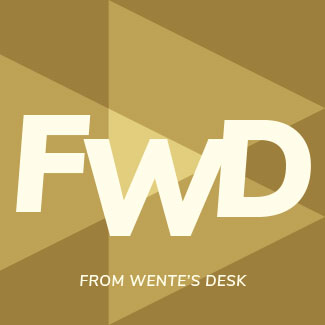Embracing our values and building trust in challenging times

So much of my time is spent in conversations with the Wake Forest community both locally and around the country. Each conversation is an opportunity to share our Wake Forest story – our accomplishments of today and our aspirations for tomorrow. These are also valuable opportunities for me to learn what is most important to all our community members.
Over the past few months, one question has surfaced again and again during these conversations: “What is happening in higher education right now?” It is often followed quickly by: “What do you think about it?”
Universities have long been the focus of public discussion and debate. In recent years, topics such as admission policies; diversity, equity and inclusion work; and free speech and expression on campuses have generated heightened interest among many inside and outside of higher education.
This past fall semester, the discourse intensified with the outbreak of the Israel-Hamas War, the scrutiny of how some campuses responded, and the December congressional hearings and dialogue that has followed. I do not expect the spotlight to dim in the coming months.
How should universities meet this moment? How should Wake Forest respond?
I believe that now more than ever we must be courageous and uncompromising in pursuing our mission and fulfilling our commitments to our values and society. As I said in my message to the campus community last week, we are taking action to ensure we continue to lead during this moment and enable our campus community to thrive. Our energy this spring is focused on three key areas:
We put people first. The abiding care we demonstrate for one another – faculty, staff, students, alumni, parents, and board members – is a distinction of this University.
As we see a turn toward more abusive and cruel rhetoric and actions in our broader society, Pro Humanitate calls us to embody the opposite. Care for others is central to who we are. Educating “for humanity” is what we do here. Each of us has the power to demonstrate this care and live out our values, both on and off our campuses.
Another way we will put people first is by directly asking everyone what their experience at Wake Forest is like – and not being afraid of the answers. This week, we launched Wake Forest’s first comprehensive campus climate survey for all faculty, staff, and students. The Belonging and Inclusion Campus Evaluation is part of a year-long project to better understand our campus climate today. In addition to the survey, later this spring, focus groups with faculty, staff, and students will be conducted to amplify all the voices in the survey data. We will use the results of this overall effort to inform the next steps to further strengthen Wake Forest’s campus environment so that everyone feels they can thrive here.
We welcome debate and hard questions: Engaging in dialogue and debate is in our DNA, and it’s never been more important in society. When we connect our academic mission and our motto to our deep history, the possibilities are inspiring. At Wake Forest, we will engage in informed discourse on the most difficult and controversial questions of our time, while remaining grounded in respect for one another and recognition of our shared humanity.
An important component of this dedication to debate and the exchange of ideas is Wake Forest’s foundational principles regarding free expression and academic freedom. In September 2023, Provost Michele Gillespie and I charged a task force to document Wake Forest’s freedom of expression and academic freedom statements, along with their histories. Throughout the fall semester, the task force carefully researched our past and current approaches across the University and at peer institutions. They were also charged with making recommendations regarding the next steps and how Wake Forest can continue to lead on these issues.
This spring semester, we are engaging the Board of Trustees, Faculty Senate, Student Government, and Staff Advisory Council on the task force findings. I view this work as core to the University’s shared governance responsibilities and accountability. And, I am grateful for our focus on carefully balancing the right of all Wake Foresters to share their opinions, perspectives, and practices with the commitments that bind us together as a caring community.
Finally, we know who we are. During the University Strategic Framework process, we spent more than a year defining who we are today and who we aspire to become. We did the hard work of articulating our values, goals, and desired outcomes for the future. Our shared embrace of Pro Humanitate, combined with the Framework’s goals and our work together to attain them, provide a solid platform to keep us anchored to our mission. Our teaching and innovation have never been more important for providing students with paths to meaningful careers and lives of purpose.
This semester, the schools and College, along with departments and units, will propose specific plans to support the Framework and allow us to achieve our ambitions. In sum, we are mapping the way forward for Wake Forest — and all Wake Foresters have a role to play in doing so. I encourage you to take opportunities to participate in this planning during the semester.
These are just three of many ways we are embracing our values, committing to continuous improvement, acting to strengthen our inclusive campus community, and building trust in all that we do.
The American writer and educator William Arthur Ward once said, “The pessimist complains about the wind; the optimist expects it to change; the realist adjusts the sails.” We are undoubtedly navigating through a complex and demanding time for higher education, our nation, and the world. With transparency and teamwork, I am confident in Wake Forest’s ability to lead in this moment by adjusting the sails together.
Categories: From Wente's Desk
